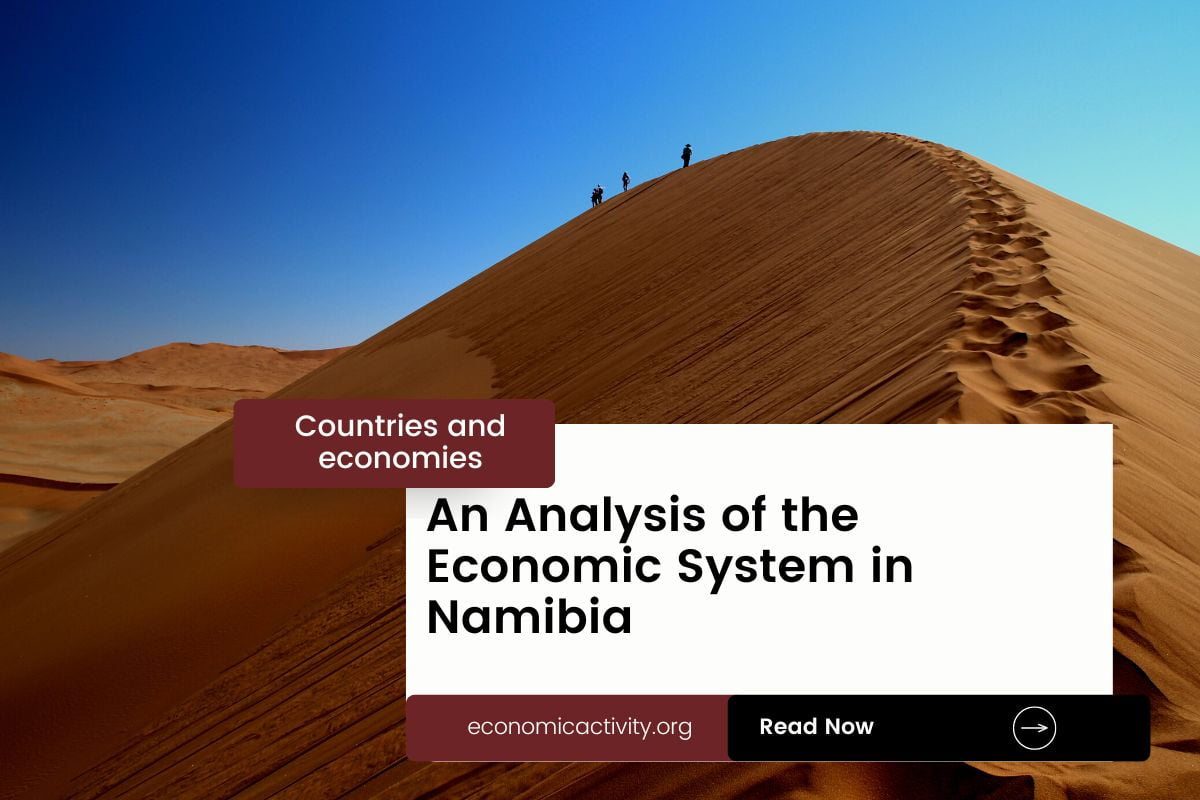What is the economic system of Namibia? The economy of Namibia is based on a mixed economy. The country’s economic system combines elements of a market economy and a planned economy.
Namibia’s economy is heavily dependent on mining, particularly diamonds and uranium. Agriculture and fishing also play a significant role, while tourism is a growing sector.
In Namibia, the economy is composed of a private sector, consisting of individuals and businesses that make autonomous decisions based on self-interest, and a public sector, where the state determines the production and distribution of certain goods and services. No country is purely capitalist or purely communist.
What do the freedom indexes tell about the economic system of Namibia?
Now, to determine if a country is mostly a market economy or a planned economy, it is useful to examine some economic indexes. For instance, according to the 2022 Index of Economic Freedom, which measures the ability of every human to control his own labor and property, Namibia is ranked 95th globally and 11th in Sub-Saharan Africa indicating that the country has a mostly unfree economy.
But also, the 2022 Freedom House index evaluates the state of political rights and civil liberties globally. Generally, market economies tend to align more with democracy and freedom, while command economies tend to be characterized by greater state control and fewer democratic and civil liberty protections. Namibia gets a score of 77/100, which qualifies it as Free.
Namibia is mostly a country where the government does not control what people do for political reasons, and people have the freedom to choose (what, how much, and how to produce, whether to buy or not, selling price, etc.)
What do the biggest companies in Namibia say about the country’s economic system?
The biggest company in Namibia should also be looked at, as well as whether it is a state-owned or private company. In this case, Bidvest Namibia is a leading provider of services and products in the fields of logistics, financial services, and office and business solutions. The company is owned by Bidvest Group Limited and other private share holders.
Namibia’s private sector industries include mining, tourism, agriculture, and fishing. The public sector industries include education, healthcare, and transportation.
The historical factors that have influenced the economic system of Namibia
Namibia’s mixed economy system is the result of a combination of factors, including the country’s colonial history, its post-independence economic policies, and its current economic structure.
Colonial rule left the country with a legacy of inequality and poverty, while post-independence policies focused on developing a market-based economy. The current economic structure is characterized by a mix of public and private sector activity, with the government playing a major role in the economy.





Leave a Reply